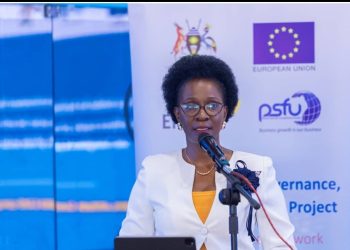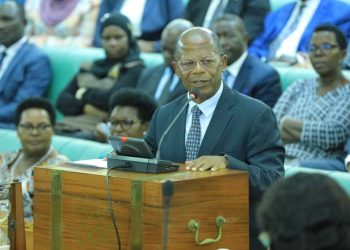Private security firms in Uganda have submitted a petition to the Speaker of Parliament, seeking assistance to protect their businesses from the impact of new fees and competition from government armed forces.
The Uganda Private Security Association (TUPSA) has expressed concerns about the tax regime, increased fees, and the preferential treatment of a new firm owned by the Uganda People’s Defence Forces (UPDF), which are adversely affecting their industry.
TUPSA’s petition, received by the Office of the Speaker of Parliament, emphasizes that the current situation threatens the private security sector’s survival and its role in safeguarding people’s lives and property.
Mr. Grace Matsiko, the chairperson of TUPSA, confirmed their request for Parliament’s intervention to address these challenges.
The association, representing more than 300 members nationwide and approximately 100,000 security guards, highlights the increased fees for firearm permits, which have surged from Shs100,000 to Shs1 million.
They point out that this escalation has significantly burdened their industry.
According to the petition, private security firms used to pay Shs75,000 for firearm permits, but the police introduced new fees that now require them to pay Shs100,000 per gun.
The petition argues that the abrupt change in fees from Shs100,000 to Shs1 million per gun has hampered the sector’s growth and led to job losses and investment decline.
Furthermore, the government imposed a $50 fee for a permit to purchase every 100 bullets, impacting the private security firms’ ability to replenish ammunition stocks and expand their operations.
TUPSA members have urged Parliament to ensure fair competition, especially with the emergence of NEC Security Services Ltd, owned by the National Enterprise Corporation, a commercial entity of the UPDF.
They claim that government-owned security firms like NEC Security Services Ltd enjoy several advantages, including the use of government resources and the ability to carry automatic rifles, which other private security firms are prohibited from doing.
This unequal footing has given state-owned firms an edge in the market.
Mr. Matsiko noted that his members are concerned that government-owned security firms may underbid their private counterparts, making it difficult for the private security industry to compete effectively.
In July, Lt Gen James Mugira, the CEO of NEC, assured Parliament that NEC Security Services Ltd would not deploy UPDF personnel for private security operations.


































































